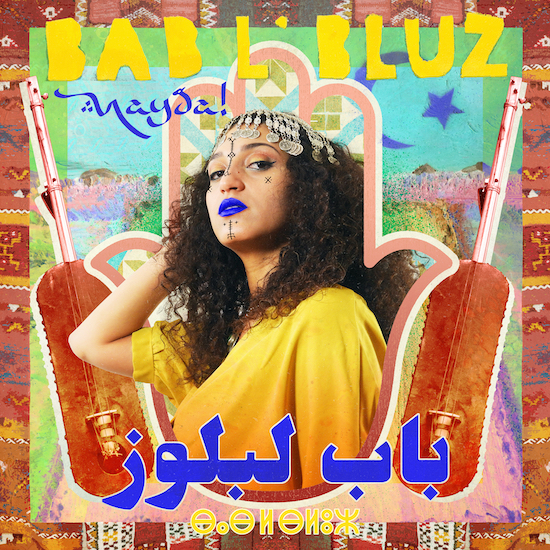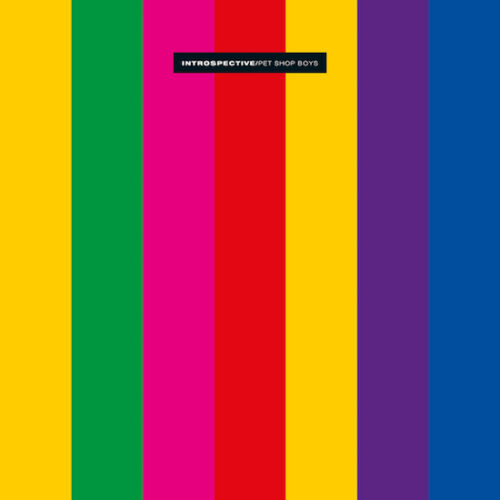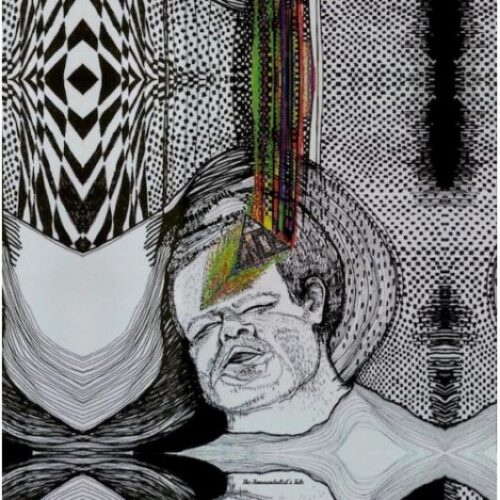‘Gnawa Beat’ might not just be the title of the opening song on the debut album from Bab L’ Bluz, but could also serve as a fairly close approximation of the music within.
Listeners already familiar with traditional Moroccan gnawa music will be aware of its trance-like properties. If you witness a group of musicians performing on Djemaa El Fna – Marrakesh’s fabled square renowned for late night revelry – you will never want the performances to end as they create repetitive guembri bass lines that can almost transport to timeless zones. Also known as the ‘Assembly of the Dead,’ the square presents entertainment as part of a daily routine that has remained much the same for hundreds of years.
There is something about such scenes that has enticed curious explorers to Morocco over the years – not least in part to beat writers and artists, whose visits are well documented, to musicians including The Rolling Stones and members of Led Zeppelin.
The guembri and qraqeb percussion forms the basis of the tracks, but there is fuzz guitar, drums and flutes. The group’s not-so-secret weapon is frontwoman Yousra Mansour, whose dynamic and diverse vocal range provides the focal point as she plays awisha (a miniature form of guembri), described as taking the part of lead guitar in the group, duelling with the ‘bass’ of Brice Bottin’s guembri.
On Nayda!, Bab L’ Bluz have honed an original set created with traditional musical instruments and gnawa style, processed through a psychedelic filter, with a certain beat and popular rock music sensibility in the arrangements.
‘Nayda,’ or ‘up,’ is a cultural and musical revolution in Morocco over the last twenty years, as a new generation created space for artistic expression, coinciding with the arrival of King Mohamed VI to power.
Growing up Mansour attended music festivals in Essaouaria and was inspired by artists as diverse as Lebanese singer Fairouz and Janis Joplin. But as a woman, she still found some resistance to her desire to play gnawa music, although she was encouraged by her mother to follow her dreams.
‘Ila Mata’ was inspired by Tunisian poet Anis Shoshan, with a message of peace and salvation to ‘awaken sleeping consciousnesses’ to all ‘sisters and brothers regardless of their origins’. In one of Shoshan’s most well-known works from 2015, Peace, he rallied against ignorance and backwardness.
Sampled Berber vocal music on ‘Africa Manayo’ sounds reminiscent of Brian Jones’ heavily treated Moroccan field recordings from his visits in the late 1960s. Translated as ‘United Africa’ the song lyrics take a stand against exploitation of workers and resources across the continent.
The combination of traditional and contemporary styles could be compared to Noura Mint Seymali, who plays a distinctly psychedelicised take on Mauritanian griot folk music combining traditional instruments and electric guitars. And there is some foundation to this connection, backed up by the inclusion of ‘Waydelel’, written by Seymali’s stepmother Dimi Mint Abba and Khalifa Ould Eide.
The fusion of contemporary rock and funk and ancient traditional Moroccan musical forms including gnawa and chaabi makes for an always diverting listen. And while influenced by music from across North Africa there is a fluid thread throughout Bab L’ Bluz’s arrangements and lyrics, mainly sung in Moroccan darija and revealing a strong social consciousness.
Throughout Nayda! the Moroccan-French quartet open up portals to what they describe as the origins of the music, gnawa trance, and Malian blues. Bab L’ Bluz itself translates as ‘gateway to the blues’.








